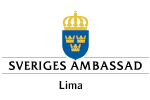![]() The economist Hernando De Soto regarded excessive bureaucracy as the root cause of corruption in the developing world. In post-Soviet states, some of the world's most corrupt, the bureaucracy is mostly inherited from a time when cheating the state was a national pastime.
The economist Hernando De Soto regarded excessive bureaucracy as the root cause of corruption in the developing world. In post-Soviet states, some of the world's most corrupt, the bureaucracy is mostly inherited from a time when cheating the state was a national pastime.
It has been strengthened and streamlined to keep out the unconnected. So in these countries, corruption is both a traditional part of the social fabric and a mainstay of the regime. The only way to beat it is to take the reins out of the bureaucrats' hands, depriving them of any opportunity to collect a rent.
The IMF paper contains exactly three paragraphs about eliminating excessive regulation, but one of these stresses the importance of technology (electronic procurement again), and another warns that deregulation can "pose its own risks, particularly where the institutional framework is underdeveloped." These risks, according to the paper, are associated with the monopolies created by the fast post-Soviet privatization. The oligarchs who put together these conglomerates are pretty good at government capture. Bendukidze's approach to them was "play by the new rules or rot in jail," but that can't be part of any "institutional framework."
Eradicating corruption in countries where it is the way of life can't be achieved by following a rule book. Bendukidze's method probably isn't the only possible one, but no useful recipe can be based solely on recommendations from law-abiding, orderly Western societies: Post-Communist states, and probably many in Africa and Asia, have deep traditions of subverting and mocking the systems and institutions of power.
According to the IMF, corruption costs the world $1.5 trillion to $2 trillion a year, or 2 percent of global economic output, mainly by undermining incentives for taxpayers to share their incomes with governments, increasing costs and undermining the quality of public spending, and stifling private investment and productivity. The losses mostly occur in the countries that can least afford them. The West cannot do much to help, either in terms of enforcement or by offering advice. It's up to each corrupt nation to rip up its bureaucracy and chase away its architects.This column does not necessarily reflect the opinion of the editorial board or Bloomberg LP and its owners.
To read the full article by Leonid Bershidsky visit Bloomberg


